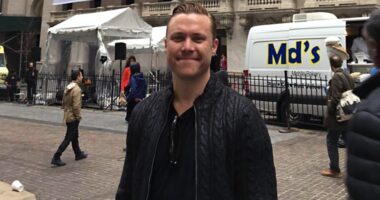
A top Federal Reserve official said he expected elevated inflation pressures to decline without requiring a more aggressive response by the central bank next year—but warned of growing risks to that forecast, including from additional government spending being contemplated by the Biden administration.
Fed governor Randal Quarles said Wednesday he expected inflation to “decline considerably next year from its currently very elevated rate.” Inflation has been worse and longer-lasting than expected, Mr. Quarles said, because demand has temporarily outstripped disrupted supply.
But because the “fundamental productive capacity of our economy” hasn’t changed as a result of the coronavirus pandemic, and because the factors disrupting the economy appear likely to fade over time, “constraining demand now, to bring it into line with a transiently interrupted supply, would be premature,” he said.
Fed officials need to guard against the risk of overreacting to temporary disruptions, for example, by raising interest rates to cool off demand “just as supply is increasing,” he said. That could lead inflation to fall too low and, in the worst case, feed an extended period of sluggish growth and unnecessarily low employment, Mr. Quarles said.
Because the Covid shock is likely to end, “monetary policy often can look through those types of disruptions to consider what inflation will be in the future when this episode passes,” he said.
At the same time, Mr. Quarles warned of an opposing risk that the current interval of high inflation becomes entrenched because consumers and businesses begin to expect inflation to stay elevated for years, leading workers to demand higher wages and businesses to pass along higher prices to consumers.
Rising vaccination rates and nearly $2.8 trillion in federal spending approved since December have produced a recovery like none in recent memory. Inflation has soared this year, with so-called core prices that exclude volatile food and energy categories up 3.6% in August from a year earlier, using the Fed’s preferred gauge.
A period of transitory inflation “does not necessarily mean ‘short lived,’” said Mr. Quarles. “We are discovering that it’s going to take more time than we had thought for supply to return to normal, and with demand already high during that time, I am monitoring the extent to which it could be further boosted by the additional fiscal programs currently under discussion.”
Senate Democrats have been engaged in recent days in intraparty talks to winnow a $3.5 trillion antipoverty, healthcare and climate plan that they hope to approve in the coming weeks without Republican support. The Senate has separately approved a bipartisan infrastructure bill that would spend around $1 trillion on rural broadband, public transit, roads, bridges, ports, and electric-vehicle charging stations.
Mr. Quarles said he was watching for signs that higher demand for goods and services could “lead this ‘transitory’ inflation to continue too long,” which risks continued high inflation even after “the logistical bottlenecks and supply-chain kinks have eased,” he said. “I am not quite ready to conclude that this ‘transitory’ period is already ‘too long.’”
Mr. Quarles is the third member of the Fed’s board of governors who in recent days has raised concerns about a more persistent interval of higher inflation. Until recently, worries about higher inflation have primarily been voiced by some of the system’s 12 reserve bank presidents, as opposed to the six Washington-based governors.
The Fed governor said his attention was turning away from how quickly the labor market might heal from the Covid-19 shock and toward whether inflation “begins its descent toward levels that are more consistent” with the Fed’s 2% inflation goal.
Mr. Quarles said he would be “quite wary of further increases in inflation expectations in this environment,” and that he would support the Fed raising interest rates if there was evidence of those expectations rising further.
Write to Nick Timiraos at [email protected]
Copyright ©2021 Dow Jones & Company, Inc. All Rights Reserved. 87990cbe856818d5eddac44c7b1cdeb8
This post first appeared on wsj.com








